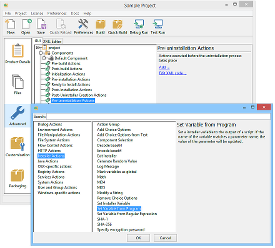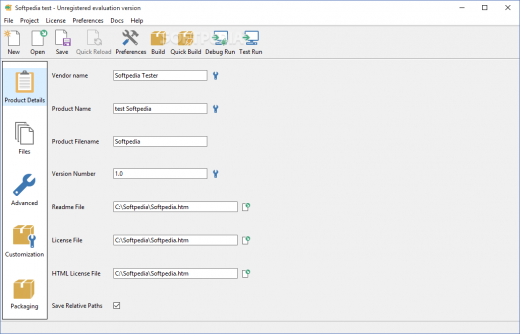

"), but the loop continued until it had finished, then the echo "Interval" never happened, as if that had always been the way that the a.sh script had ended.
#Installbuilder script code
What happens if you append code to an already running script? Well, it gets read and executed, as if that had been there all along. Runs three echo commands, but one happens to echo "date" > c.sh. This appends the word " date" to the script itself. When we display the script afterwards, we can confirm that it has modified itself: :~$ cat c.sh The script had appended the " date" command to itself, so at the end, it displayed the current date and time, even though that was not in the original script. When vim (or sed, or many other editors) edit a file, they actually save a new file and delete the original. This can be confirmed by checking the inode of a file as you edit it. (use ls -il a.sh to check the inode of a.sh). So the effect here is the same as in Test One above: The original script continues exactly as before.

Test Five: Copy a new file over the existing file But to any other process, the script has been modified. This reduces installer size and overhead while increasing the speed of installations.It turns out that once the current command has completed, Bash looks for the next character in the file to read.įor this test, I created another script, b.sh which is very simple, but easy to see where in its execution it is up to: This was actually the thing I was interested in when I started this investigation.

Because BitRock installers are single file, self-contained, native executables, they do not require bundling a Java runtime or a self-extraction step. A command line interface allows you to automate and integrate the building process. For advanced users, a friendly XML project format supports source control integration, collaborative development and customizing projects both by hand and using external scripts. An easy to use GUI allows new users to quickly learn to use InstallBuilder.
#Installbuilder script windows
Other features include convenient built-in actions for commonly required installation functions, such as: autodetecting a Java(tm) Runtime, changing file permissions and ownership, substituting text in a file, adding environment variables, adding directories to the path, creating symbolic links, changing the Windows registry, and launching external scripts. InstallBuilder offers several advanced features, including RPM integration and quickbuild functionality. In addition to traditional installers, BitRock InstallBuilder also allows you to create multi-platform CD-ROMs and generate RPMs, directly from installer project files. GUI, text, and unattended modes allow installers to be run in servers, workstations, and desktops.
#Installbuilder script mac os
The development tool allows you to quickly create easy to use, multiplatform installers that have a native look and feel across Windows, Mac OS X, Solaris Sparc, Solaris Intel, AIX, HP-UX, IRIX, FreeBSD, and Linux (Intel, Itanium, zLinux, and PPC) from a single build environment. BitRock InstallBuilder turns application packaging and deployment into a fast, easy and cost-effective process for developers.


 0 kommentar(er)
0 kommentar(er)
